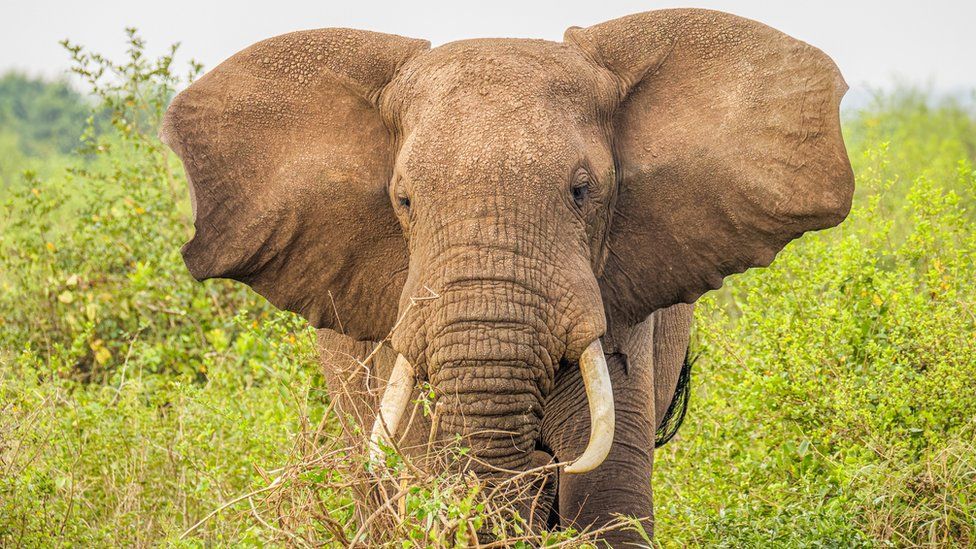ARTICLE AD BOX
 Image source, Getty Images
Image source, Getty Images
Uganda's elephant population has been rising since the 1990s, but it still faces poaching and trafficking threats
By Patience Atuhaire
BBC News, Kampala
A Ugandan court has sentenced an ivory trader to life in prison - the longest sentence for such crimes in the country's history.
A new law was passed in 2019 that toughened sentences for poaching or trafficking in endangered species.
Pascal Ochiba was arrested in January this year with two pieces of ivory, weighing nearly 10kg (22lb).
The magistrate said Ochiba, as a repeat offender, deserved life in prison for the future protection of wildlife.
In passing sentence, the chief magistrate of the country's special wildlife court, Gladys Kamasanyu, said "offences of unlawful possession of protected species are rampant and there is need to curb them", according to a statement from the Uganda Wildlife Authority (UWA).
"This is a landmark achievement in our war on illegal wildlife trade in Uganda. We must do our best in our times to protect our wildlife otherwise history will judge us harshly," UWA Executive Director Sam Mwandha said.
In 2020, the hunter who killed a silverback gorilla known as Rafiki received an 11-year sentence.
In September this year, two men were each sentenced to eight years in jail for killing six rare tree-climbing lions.
There are just over 7,900 elephants left in the wild in Uganda - these include both forest and savannah elephants.
Forest elephants are categorised as critically endangered by the International Union for Conservation of Nature and savannah elephants are listed as endangered.
The country's elephant population has been growing since the 1990s. The mammals still however face threats from poaching and trafficking.
Ochiba had been sent to prison once before - in 2017 - after he was arrested with four pieces of ivory and the skin of an Okapi.
Okapi are rare, zebra-like forest animals endemic only to neighbouring Democratic Republic of Congo.

 2 years ago
66
2 years ago
66








 English (US) ·
English (US) ·